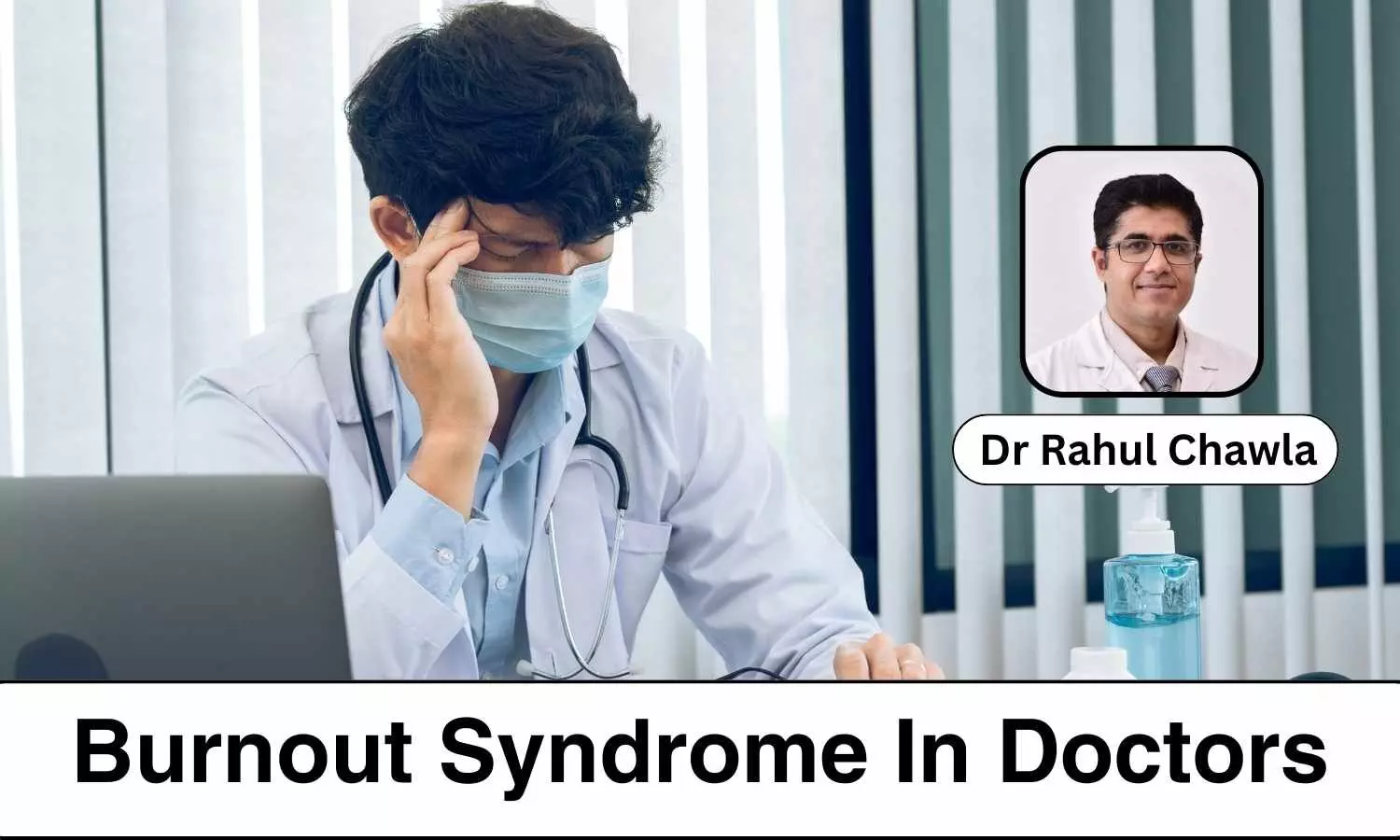Why So Many Doctors Especially Residents Suffer From Burnout Syndrome? – Dr Rahul Chawla

What is Burnout Syndrome (BOS)?
Burnout Syndrome is a subjective feeling of being
emotionally drained, feeling low and unable to keep with the incessant demands
at work place. It occurs in individuals without any prior history of
psychological or psychiatric disorders. BOS is often triggered by toxic work
environment, stress at work place and discrepancy between the expectations of
the employer or boss and work output of the employee.
Burnout Syndrome is highly prevalent in medical schools and
hospitals especially among residents and junior doctors because of the huge
load of studies, high patient load, unrealistic demands of senior consultants
on one hand and patients on the other and the dissatisfaction for not giving
enough time to themselves and their families.
Medical profession is known to have a toxic senior junior
relationship. There is a tendency of the system to put most of the manual work
on the residents. The strict 24 hours and 36 hours duty leaves very little time
for self-care, family and relationship, which makes them emotionally drained.
Due to the constant harassment, they even start hating their
jobs and seek a way out. The toxic workspace is a breeding ground for
depression and anxiety which in some instances leads to suicide.
How to prevent and manage Burnout Syndrome in workplace?
Burnout Syndrome hinders growth of an individual in the
organisation. It not just affects his/her professional life, but personal life
as well. It can lead to depression, anxiety and even suicides.
1. As an employer, hospital administrator or head of the
department, it is important to identify those who are having or likely to be
having Burnout Syndrome
2. Talk to the residents and listen to their complaints with
compassion
3. It’s better that they let the residents have their time
for family, relationships and for themselves.
4. For residents, it is imperative that they take support of
someone they trust, could be a faculty or co-worker or anyone outside the
hospital.
5. Take regular holidays and spend time with family and
friends
6. Take short breaks while working and do deep breathing,
relaxation or just go outside for a walk or fresh air.
7. If unable to deal with mood changes, seek professional
help. Do not hesitate to consult a psychiatrist.
Mental health is still a taboo in medical colleges and
hospitals. Nobody discusses the issue openly. Constant harassment impairs the
quality of work which in turn leads to more scoldings at rounds and this vicious
cycle goes on like that. It is important for us to break this chain and get rid
of this mentality of ‘just because we have faced it, our juniors must face that
as well’.



